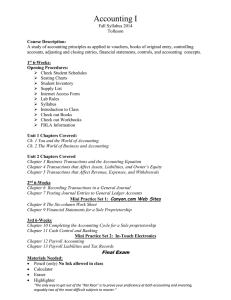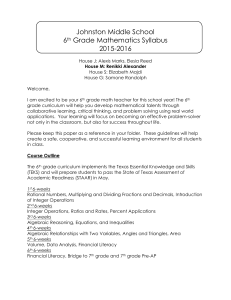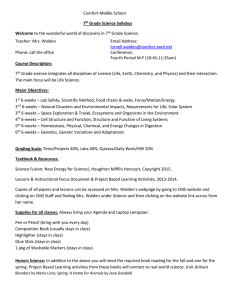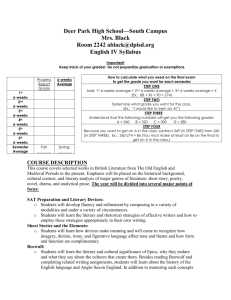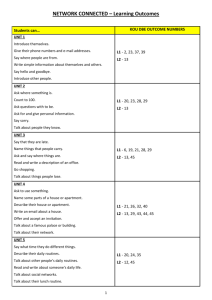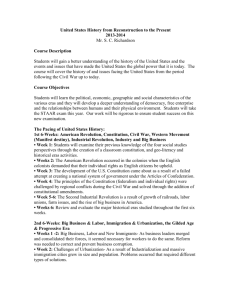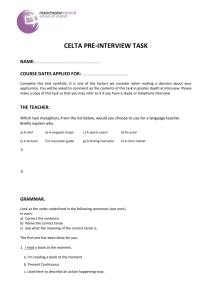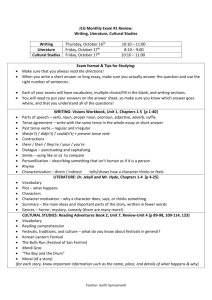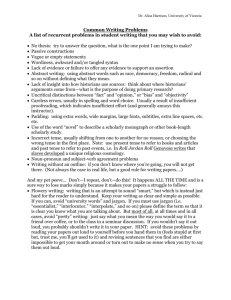Beginning ESL Syllabus
advertisement
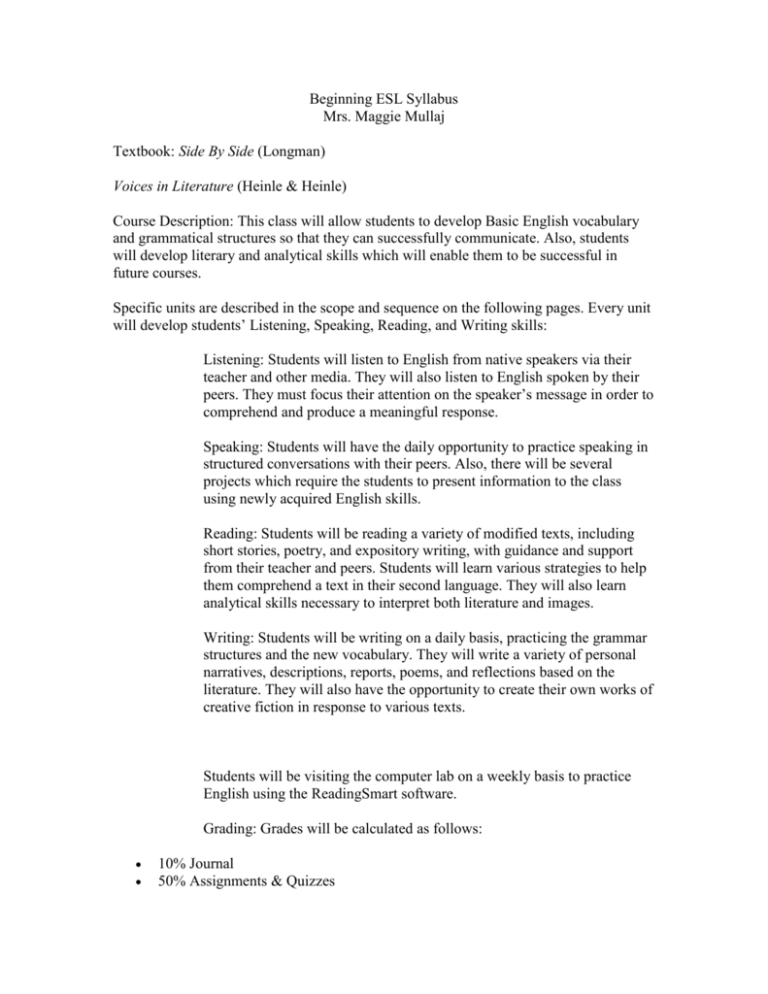
Beginning ESL Syllabus Mrs. Maggie Mullaj Textbook: Side By Side (Longman) Voices in Literature (Heinle & Heinle) Course Description: This class will allow students to develop Basic English vocabulary and grammatical structures so that they can successfully communicate. Also, students will develop literary and analytical skills which will enable them to be successful in future courses. Specific units are described in the scope and sequence on the following pages. Every unit will develop students’ Listening, Speaking, Reading, and Writing skills: Listening: Students will listen to English from native speakers via their teacher and other media. They will also listen to English spoken by their peers. They must focus their attention on the speaker’s message in order to comprehend and produce a meaningful response. Speaking: Students will have the daily opportunity to practice speaking in structured conversations with their peers. Also, there will be several projects which require the students to present information to the class using newly acquired English skills. Reading: Students will be reading a variety of modified texts, including short stories, poetry, and expository writing, with guidance and support from their teacher and peers. Students will learn various strategies to help them comprehend a text in their second language. They will also learn analytical skills necessary to interpret both literature and images. Writing: Students will be writing on a daily basis, practicing the grammar structures and the new vocabulary. They will write a variety of personal narratives, descriptions, reports, poems, and reflections based on the literature. They will also have the opportunity to create their own works of creative fiction in response to various texts. Students will be visiting the computer lab on a weekly basis to practice English using the ReadingSmart software. Grading: Grades will be calculated as follows: 10% Journal 50% Assignments & Quizzes 30% Tests & Projects 10% Homework Beginning ESL: Scope & Sequence Grammatical Concepts First 6-weeks To be: introduction Subject Pronouns Present Continuous Tense Vocabulary Units Second 6-weeks Possessive Adjectives Adjectives Possessive Nouns Prepositions of Location Third 6-weeks Fourth 6-weeks Prepositions There is/There are Singular/Plural This/That/These/Those Simple Present Tense Object Pronouns Have/Has Adverbs of Frequency Introductions Personal Information Locations Everyday Activities Everyday Activities (cont.) Describing People and Things Weather Family Members Describing Events & Activities Places Around Town Clothing Colors Languages & Nationalities Habitual Actions People’s Interests & Activities Describing People Reading & Literature Focus Literal v. Figurative Components of a Story Identifying Main Idea Identifying Theme Making Applications Characterization Point of View Using Context Clues Reading Expository Text Connecting to World Culture Conflict & Resolution Characterization The Epic Hero Predicting/Foreshadowing Making Inferences Recognizing Irony Tone Creating Suspense Imagery Fifth 6-weeks Can Have to Future: going to Want to Feelings & Emotions Abilities Occupations Expressing Obligations Invitations Telling Time Setting and Scene Using Effective Dialogue Dramatic Irony The Characteristics of a Drama Ailments & the Doctor’s Office Sixth 6-weeks Regular Past Tense Irregular Past Tense Wh- questions To be: past tense Describing Events Reasons & Excuses Television Commercials Describing Physical States & Emotion Biographies & Autobiographies Symbolism Interpreting Elements of Design Recognizing Propaganda Persuasive Techniques Researching Information Identifying Historical Contex
